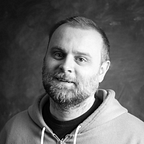The Rise of the Hegelian Cyberspace
I noticed a mirroring between the evolution of dialectic environments in our covid times and European intellectualism through the ages and wanted to jot down some thoughts and this was better than a twitter thread.
First there were few small enclosed conferences, only for the benefit of the attendees like some sort of alchemy, then came a democratization of content thanks to the Internet, starting with the WEF putting their videos online in the late 1990s (which I used to watch an in a sense it jumpstarted my career) and peaking with TED Talks on YouTube (which despite their cultural impact, the most popular have 30m+ views[1]) , but not a democratization of participation. The top conferences were still behind $1,000-to-$10,000 tickets + days of travel, and the most interesting part are never the talks but it’s the serendipitous discussion with other fellow-minded participants.
Covid created a new class of events, where some sort of virtual café culture emerges, some of them have been mostly about the platform (Discord, Slack), other a hybrid of content and infrastructure (Toucan, Clubhouse), and the last group about just the content (Interintellect, Exponential View). I don’t believe this occupies the same space and purpose as social networks (who are now completely devoid of morals, or a meaningful place for deep debate), nor it is a transitory event, as people are starting to discover that spending days traveling for a non-work conference can be wasteful, and that the pool of participants is “everyone that speaks your language”. Coffee houses did not stop with the invention of phones, and in fact today they are bigger than ever (well, they were just until November 2019).
But culture is somewhat fractal (because the universe in which we evolved is), and something like it already happened before, starting in the mid-1980s with The WELL. Co-founded by Stewart Brand and Larry Brilliant (who are the personification of Forrest Gump) it was a community BBS to discuss various topics. It has since migrated to the web[2] and I am still a paying WELL member there, but after attending both Interintellect salons and an Exponential View zoom I see the same structure happening.
The main difference being that the amount of people with access to the internet is not in the hundred of thousands like it was pre-web, but we are in the billions, and still room for triple digit growth. Even if enlightened genius is found in one in 100,000 it means that the pool of participants and the environment to connect them is more important for human culture than ever (and there is a grading scale, we don’t need to be cancer-curing geniuses to discuss all the ways Marx was bad).
I, for one, welcome this development. I think it has been overlooked by VCs that initially only focused on platforms about work, and because the 2nd order effects generated cannot be easily monetized (and in general, few VCs understand “culture” as a class of investment on its own because they are not paid to understand it). Covid will fade, remote enlightenment will continue.
[1] The actual viewcount is higher, as TED Talk are also distributed directly from ted.com plus they are syndicated on various platforms like airline TV channels etc
[2] I actually used Telnet to access The WELL until the very end — still unhappy that Pine access was discontinued
